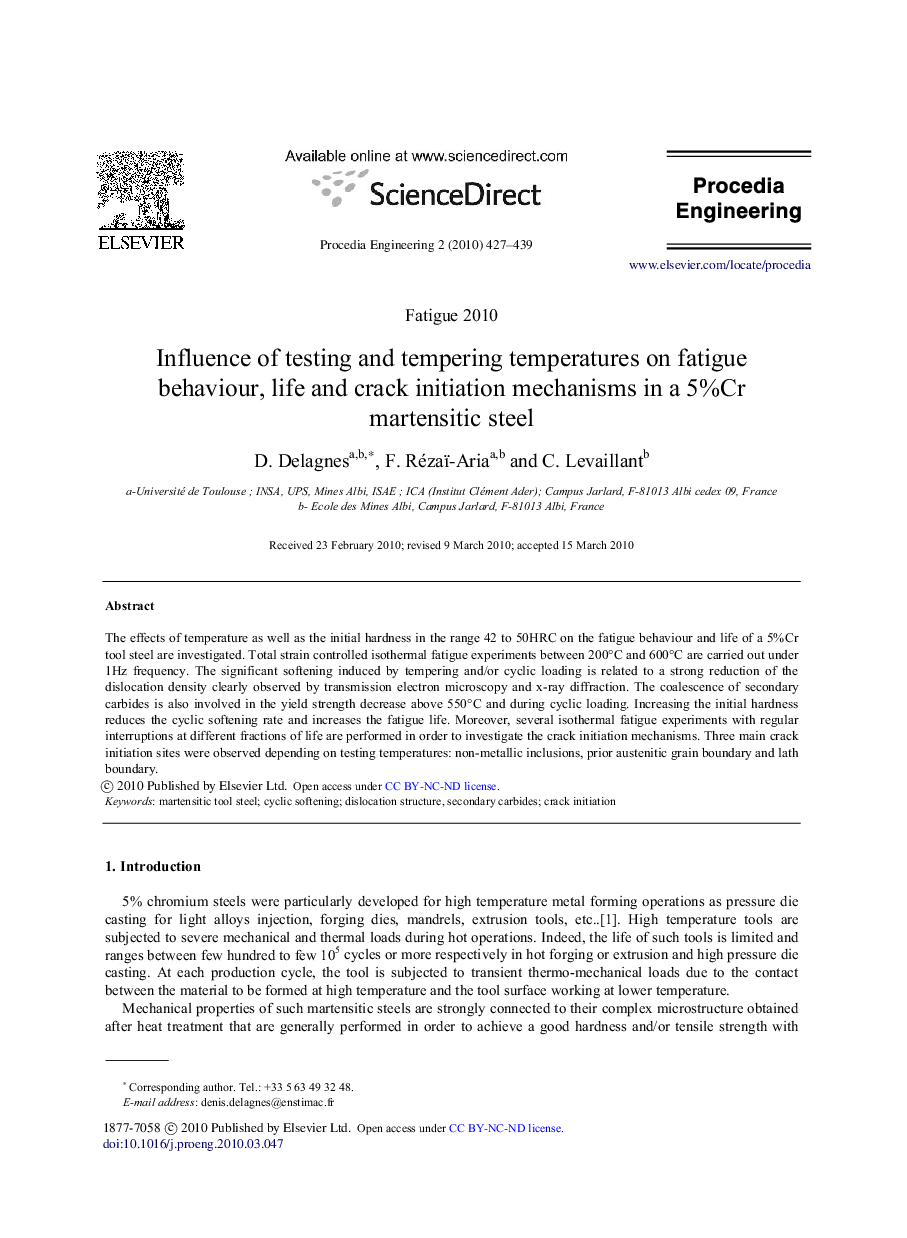| Article ID | Journal | Published Year | Pages | File Type |
|---|---|---|---|---|
| 864634 | Procedia Engineering | 2010 | 13 Pages |
The effects of temperature as well as the initial hardness in the range 42 to 50HRC on the fatigue behaviour and life of a 5%Cr tool steel are investigated. Total strain controlled isothermal fatigue experiments between 200 °C and 600 °C are carried out under 1Hz frequency. The significant softening induced by tempering and/or cyclic loading is related to a strong reduction of the dislocation density clearly observed by transmission electron microscopy and x-ray diffraction. The coalescence of secondary carbides is also involved in the yield strength decrease above 550 °C and during cyclic loading. Increasing the initial hardness reduces the cyclic softening rate and increases the fatigue life. Moreover, several isothermal fatigue experiments with regular interruptions at different fractions of life are performed in order to investigate the crack initiation mechanisms. Three main crack initiation sites were observed depending on testing temperatures: non-metallic inclusions, prior austenitic grain boundary and lath boundary.
